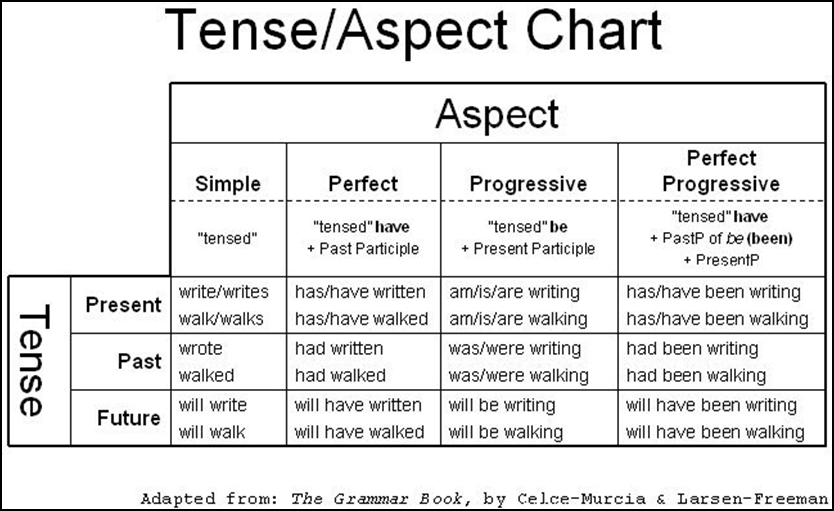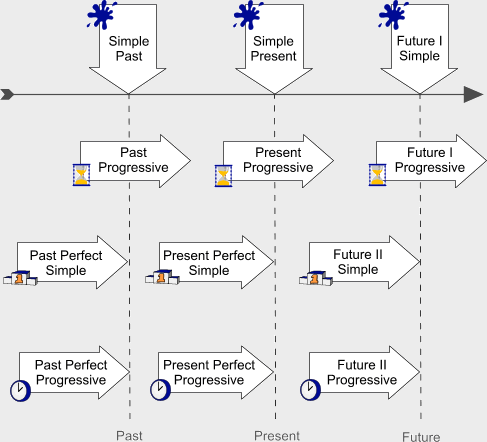
- •М инистерство образования и науки российской федерации
- •© Издательский центр юУрГу, 2014 unit 1
- •Vocabulary and Speech Exercises
- •Dialogue
- •Court system
- •Grammar Exercises Types of Questions
- •Court systems of uk and usa
- •Courts in great britain
- •House of Lords
- •United states courts
- •Understanding the levels of us federal courts
- •Grammar Exercises Time Tenses
- •Interrogation:
- •The jury
- •Vocabulary and Speech Exercises
- •The jury
- •Dialogue
- •Jury service – an important job and experience
- •Court etiquette
- •The rules and language of the courtroom
- •Grammar Exercises Time Tenses
- •Modern crimes
- •Vocabulary and Speech Exercises
- •Dialogue
- •Victim: _______________________________________________________
- •Incident type: __________________________________________________
- •If items were stolen, list them _____________________________________
- •Classifications of crimes
- •Elements of a Crime
- •Crime in russia
- •Modern Crimes
- •Grammar Exercises
- •Daring Raid at Local Hotel
- •Crimes and punishment
- •Vocabulary and Speech Exercises
- •Below is a range of sentences that may be imposed. Work in pairs and match each sentence to its definition. Then ask a partner a definition for him(her) to guess.
- •Dialogue
- •Vocabulary:
- •The Sentence of the Court is …
- •Grammar Exercises Modals
- •Civil procedure
- •Capital punishment: pros and cons
- •Vocabulary and Speech Exercises
- •Dialogue
- •From the history of punishment
- •Grammar Exercises Reported Speech
- •Organized crimes
- •Vocabulary and Speech Exercises
- •Dialogue
- •Organized crime groups
- •Grammar Exercises
- •Vocabulary and Speech Exercises
- •Dialogue
- •Want to be a forensic scientist?
- •Types of evidence
- •Physical and biological evidence
- •Fbi Biometric Center of Excellence
- •Grammar Exercises Relative Pronouns
- •Insert who/ whom/ whose/ which/ that/ where or nothing if possible and translate the sentences:
- •Vocabulary and Speech Exercises
- •Dialogue at the police station
- •Facial features
- •Read the text and render its context in 3-5 sentences; say what its main idea is.
- •Interviewing a witness
- •Do you trust your witness?
- •Identification in police investigation
- •Grammar
- •Imperatives
- •Miranda warning
- •Gerund Complex (Герундиальная конструкция)
- •Human rights and police
- •Vocabulary and Speech Exercises
- •Dialogue
- •European platform for policing and human rights
- •Grammar Exercises Conditional Sentences
- •British police
- •Vocabulary and Speech Exercises
- •Dialogue
- •A Detective
- •Police officers
- •Prepare an annotation of the text.
- •Fill the gaps with the words from the box; read and translate the text.
- •Grammar Exercises
- •The us police
- •Early Police in the United States
- •Vocabulary and Speech Exercises
- •Dialogues
- •The Trooper Pledge
- •Visit any police department website and make a presentation using the tips given below:
- •Grammar Exercises
- •Law enforcement in the usa
- •International cooperation unternational law
- •Vocabulary and Speech Exercises
- •Dialogue
- •International law
- •Sources of International Law
- •International court of justice
- •Interpol
- •Grammar Exercises Abbreviations
- •Washington, dc. – fbi hq, 10 a.M.
- •Visit the websites of the fbi, Interpol, Europol and make up your own list of abbreviations they use. Грамматический справочник General Questions (Yes/No Questions)
- •Special Questions (Wh-Questions)
- •Tag Questions
- •Видо-временная система английского глагола
- •Условные обозначения, используемые в таблице:
- •Группа времен Simple (Indefinite)
- •Случаи употребления the Past Simple (Indefinite) Tense
- •Группа времен Perfect
- •Группа времен Perfect Continuous
- •Случаи употребления the Present Perfect Continuous Tense
- •Случаи употребления the Past Perfect Continuous Tense
- •Случаи употребления the Future Perfect Continuous Tense
- •Страдательный залог (The Passive Voice)
- •Образование времен страдательного залога
- •Модальные глаголы (Modal Verbs)
- •Употребление модальных глаголов с инфинитивом в форме Perfect
- •Косвенная речь (Reported Speech)
- •Согласование времен (Sequence of Tenses)
- •Неличные формы глагола (Non-finite verbs или Verbals)
- •Функции причастия I в предложении
- •Относительные местоимения. Определительные придаточные предложения (Relative Pronouns. Relative Clauses)
- •Условные предложения (Conditional Sentences)
- •Аббревиатура
- •Introducing a point of view
Grammar Exercises Time Tenses


Define the following points using the pic. on page 150.
факт в будущем; 2. процесс в настоящем; 3. результат в прошлом; 4. длительность и завершенность в настоящем; 5. факт в прошлом; 6. процесс в прошлом; 7. длительность и завершенность в будущем.
Define the time and tense of the verb in the following sentences:
Катя еще не пришла.
Вася изучает английский язык вот уже 10 лет.
Мы сейчас внимательно выполняем упражнение.
Студенты любят каникулы.
…
…
Think of 4 more sentences and ask your partner to define the time and tense of the verbs.
Complete the sentences with the verbs given, using the Present Simple:
1. The police … (to investigate) crimes.
2. The judge … (to sentence) people.
3. Prisoners … (to live) in cells.
4. The jury … (to decide) if someone is innocent or guilty.
5. Barristers … (to defend) people and … (to present) evidence.
6. Criminals … (to commit) crimes.
7. When someone … (to break) the law the police … (to try) to find out who is responsible.
8. The defendant … (to provide) facts to show something is true.
9. Shoplifters … (to steal) things from shops.
10. The manslaughter is that who … (to kill) somebody by accident.
11. Policemen … (to carry) guns.
12. People … (to install) a burglar alarm so that to protect their property.
VI. Translate from Russian into English:
1. Сейчас Майкл знакомится с материалами дела.
2. В данный момент криминалисты осматривают место преступления.
3. Следователь опрашивает свидетелей.
4. По только что полученной информации, угонщики удерживают заложников внутри самолёта и угрожают взорвать его, если не будут выполнены их требования.
5. Согласно статистическим данным, растёт число преступлений среди несовершеннолетних.
6. Сейчас адвокат пытается убедить суд присяжных в виновности обвиняемого и намеривается подвергнуть перекрёстному допросу главного свидетеля.
7. Я сам защищаю себя в суде, т.к. не нашёл подходящего адвоката.
8. В данный момент он даёт показания против своей жены.
V. Choose the most appropriate variant from the given choice and translate the sentences from English into Russian:
1. The UK Government thinks / is thinking about a proposal to allow thousands of prisoners to have televisions in their cells.
2. The woman who has been badly hurt in the accident is feeling /feels worse and worse.
3. In England and Wales there is a jurisdiction system where defendants have / are having the rights to choose their courts.
4. Mr. Straw is hearing / hears the jurors discussing the verdict.
5. The prosecuting attorney feels / is feeling that the witness for the defence is telling a lie.
6. So that to identify this person the officers look through / are looking through the files of the criminals caught for the last two months.
7. The dog is smelling / smells out drugs in the container.
8. The man walking south along the street is looking / looks like a wanted gangster.
9. It is smelling / smells danger.
10. This drink tastes / is tasting like sherry we had in the evening of murder.
11. Most of juveniles are feeling / feel depressed because they depend / are depending on their parents.
12. They are seeing / see what the detective is driving at.
13. The experts see / are seeing in some days to decide whether it is an important amendment to the Rules or not.
14. The judge is thinking / thinks that violent crimes committed by electronically monitored offenders are rare.
VI. Find out the mistakes in the use of the Present Perfect and correct them:
1. “Did you seen the morning papers?”
“No.”
“There’s a photograph of the victim in the morning paper,” Mason said. ‘They has photographed the features and retouch the eyes so as to give the corpse a lifelike appearance. They feel that someone is certain to recognize him.”
2. “Have you meet him before?”
“No.”
“Have you thinks of anything, any clue which would enable us to locate him?”
“No. I have been trying. There was nothing I could put my finger on. I can’t remember anything except what I has told you already.”
Mason nodded. “I’m inclined to think they do. However, the police haven’t announce it. They’re acting on the assumption that the identity of the murder victim is a mystery. Now, there’s another thing. They has found the murder weapon was the 22 rifle that was lying on the floor of the bedroom. Have you pick up that rifle?”
“Yes. Things were all pretty much of a whirl in my mind, but I’m quite certain I picked it up.”
VII. Read a short report about the bank robbery given below and complete the interrogation of a bank customer using the Past Simple:
…Police has caught two suspects who are supposed to be bank robbers. The bank robbery was in Manchester last Saturday. It was a quarter past seven when two men dressed in all black, entered the bank and drew the pistols. There were only a few customers in the bank at the time. They made the customers lie on the floor and forced the cashier to put the money in a sack. Then one of the robbers pulled a knife from his jacket and said to the customers lying on the floor: “Give me your purses or you’re stuck!” and they handed the purses over one by one to him. At that moment the bank alarm began ringing due to the security guard who had pushed the button and the robbers fled the scene of the crime…
